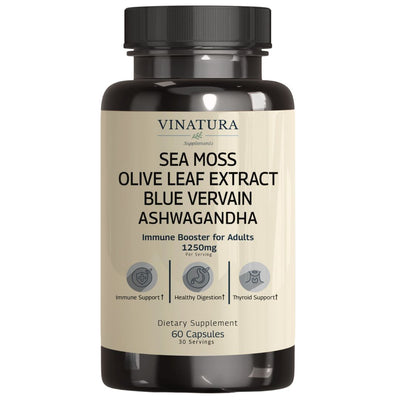
Benefits Of Lutein For Eye Health: Is It Helpful?
Lutein is a nutrient found in various fruits and vegetables, particularly in dark green leafy ones like spinach, kale, and broccoli. It belongs to the family of carotenoids, which are natural pigments that give plants their vibrant color. In this article, we will discuss the potential benefits of Lutein for eye health and whether it is beneficial.
Before exploring further, please read the disclaimer located at the end of this webpage.
What Is Lutein?
Lutein is a naturally occurring pigment, or carotenoid, found in various plants and vegetables. It belongs to the family of xanthophylls, yellow pigments that give plants vibrant color.
Lutein is commonly found in dark green leafy vegetables such as kale, spinach, broccoli and colorful fruits like oranges and kiwis.
Lutein is a carotenoid known for its anti-inflammatory properties. Similar to Lutein, zeaxanthin is another crucial carotenoid for eye health. Lutein and zeaxanthin are found in the human retina, primarily in the macular region behind the eye. These two carotenoids are unique in being located in the macula.
In addition to benefits of Lutein for eye health, Lutein is also recognized for its positive effects on cardiovascular health, cognitive function, and reducing the risk of certain types of cancers [1].
How Does Lutein Benefit Eye Health?
Lutein is an essential nutrient for maintaining healthy eyes, particularly the macula, responsible for central vision. The macula comprises a yellow pigment called macular pigment, which contains high levels of Lutein and zeaxanthin (another carotenoid). This pigment is a natural filter to protect the macula from damaging blue light and oxidative stress.
Studies have shown that Lutein helps to reduce the risk of age-related macular degeneration (AMD) – a condition that leads to loss of central vision in older adults. It is also believed to play a role in preventing cataracts, which cloud the eye's lens and negatively impact vision.

Research by Le Ma and Xiao-Ming Lin suggests that Lutein's eye-protective effects are due to its ability to filter blue light and its antioxidant properties [2].
These mechanisms help address age-related macular degeneration, cataracts, and retinal pigment epithelial inflammation [2].
Lutein is also known to help form critical pigments in the macular region of the human eye, protecting the fovea from damage caused by blue light [3].
A 2020 study explained how carotenoids, including Lutein, promote eye health by neutralizing free radicals and preventing damage to the retina [4]. The research shows that Lutein and zeaxanthin effectively reduce oxidative stress in the body and protect the eyes [4].
Silvio Buscemi and colleagues' research supports the antioxidant properties of Lutein in reducing damage from phototoxicity to photoreceptor cells by quenching singlet oxygen and scavenging free radicals.
It also highlights Lutein's ability to filter blue light and reduce inflammation by lowering the production of reactive oxygen species (ROS). This makes Lutein important for immune regulation, anti-inflammatory responses, and reducing oxidative damage [5].
Benefits of Lutein for Eye Health

Here are some main benefits of lutein for eye health:
- Protection against Age-related Macular Degeneration (AMD): Lutein's role in the macula helps guard against AMD, a leading cause of vision loss in older adults. It does this by filtering harmful blue light and serving as an antioxidant.
- Cataract Prevention: Studies suggest that Lutein may help prevent cataracts, which can cause clouding of the eye lens and impair vision.
- Blue Light Filtration: Lutein's presence in the eye's macular region helps filter damaging blue light, protecting the fovea and maintaining good vision.
- Antioxidant Properties: As an antioxidant, Lutein neutralizes harmful free radicals in the eye, preventing oxidative damage to the retina.
- Reduction of Inflammation: Lutein can lower the production of reactive oxygen species (ROS), reducing inflammation and playing a role in immune regulation.
- Protection against Phototoxicity: Research shows that Lutein's antioxidant properties help reduce damage from phototoxicity to photoreceptor cells in the eye.
- Enhance the sharpness of vision: Lutein is also known to improve the visual function of the macula by enhancing contrast sensitivity, making it easier for the eyes to distinguish objects.
- Protect against nearsightedness (myopia): Studies have shown that Lutein may help protect against nearsightedness, a shared vision problem where objects up close appear clear, but those far away are blurry [6].
Dosage And Side Effects Of Lutein For Eye Health
The Food and Drug Administration classifies Lutein as Generally Regarded as Safe (GRAS). Data from the Third National Health and Nutrition Examination Survey (NHANES III) indicates that Americans consume approximately 2.4 mg/day of Lutein and zeaxanthin [2].
Concurrently, research also suggests no harmful adverse effects from Lutein and zeaxanthin when taken at doses up to 40 mg per day for 9 weeks or 30 mg per day for 140 days [2].
Furthermore, The Council for Responsible Nutrition recommends a safe daily dosage of up to 20 mg of Lutein. This indicates that Americans are consuming Lutein at levels below the established safe dose, potentially limiting the eye-related benefits of Lutein.
Therefore, there may be a need to supplement diets with higher levels of Lutein. The question of what dosage of Lutein is practical for eye health remains, as the amount of Lutein in various fruits and vegetables can vary based on individual dietary habits [5].
A study titled "The Effect of Lutein on Eye and Extra-Eye Health" estimates that the optimal dosage of lutein intake ranges from 0.67 mg/day to over 20 mg/day [5]
How To Use Lutein For Eye Health?
Incorporating Lutein into your diet is a great way to improve your eye health. Here's how you can use Lutein for better vision and overall eye health:
Add Lutein-Rich Foods to Your Diet: The best way to get an adequate amount of Lutein is by including foods rich in this nutrient in your daily meals. Some of the top lutein-rich foods include dark leafy greens like spinach, kale, and collard greens and other vegetables such as broccoli, peas, and Brussels sprouts. Fruits like kiwi, grapes, oranges, and strawberries also contain a good amount of Lutein.
Consider Supplements: If you cannot get enough Lutein from food sources, you can also opt for supplements. Lutein supplements are available in various forms, such as capsules, tablets, and soft gels.
Cook Your Food with Healthy Fats: Lutein is a fat-soluble nutrient, which means it needs healthy fats to be adequately absorbed by the body. Cooking your lutein-rich foods with healthy fats like olive oil, avocado, or nuts can help increase its absorption in the body.
Conclusion
In conclusion, the benefits of lutein for eye health cannot be overstated. From protecting against age-related macular degeneration and cataracts to filtering harmful blue light and reducing inflammation in the eyes, lutein offers numerous benefits for maintaining good vision. While it can be obtained through diet, supplementation may be necessary to reach optimal levels for maximum eye health benefits.
Frequently Asked Questions
Is It Better to Take Lutein in the Morning or at Night?
There are better times to take Lutein; it can be taken either in the morning or at night based on personal preference. The key is consistency in taking the supplement to maintain a steady level in the body.
Is It Safe to take Lutein Daily?
It's generally safe to take lutein supplements daily. Lutein is classified as Generally Regarded as Safe (GRAS) by the FDA, and studies show no harmful effects when taken at recommended doses.
Are There Any Substances That Should Not Be Taken With Lutein?
Lutein doesn't generally interact negatively with other substances. However, it's always recommended to consult with your healthcare provider before starting Lutein, especially if you're taking other medications or supplements, to ensure no potential interactions.
How Long Does It Typically Take for Lutein to Show Results?
The effects of Lutein on eye health can vary among individuals, typically becoming noticeable after a few weeks to months of consistent intake. Regular consumption of lutein-rich foods or supplements can gradually improve vision and eye health.
Does Lutein Have Any Adverse Effects On the Liver?
There's no established evidence to suggest that Lutein has adverse effects on the liver. It is generally considered safe for consumption.
References
- [1] Buscemi, S., Davide Corleo, Pace, F., Maria Letizia Petroni, Satriano, A., & Marchesini, G. (2018). The Effect of Lutein on Eye and Extra-Eye Health. Nutrients, 10(9), 1321–1321. https://doi.org/10.3390/nu10091321
- [2] Ma, L., & Liu, X. (2010). Effects of lutein and zeaxanthin on aspects of eye health. Journal of the Science of Food and Agriculture, 90(1), 2–12. https://doi.org/10.1002/jsfa.3785
- [3] Abdel-Aal, E.-S. M., Akhtar, H., Zaheer, K., & Ali, R. (2013). Dietary Sources of Lutein and Zeaxanthin Carotenoids and Their Role in Eye Health. Nutrients, 5(4), 1169–1185. https://doi.org/10.3390/nu5041169
- [4] Fatima Tuj Johra, Asim Kumar Bepari, Anika Tabassum Bristy, & Hasan Mahmud Reza. (2020). A Mechanistic Review of β-Carotene, Lutein, and Zeaxanthin in Eye Health and Disease. Antioxidants, 9(11), 1046–1046. https://doi.org/10.3390/antiox9111046
- [5] Buscemi, S., Davide Corleo, Pace, F., Maria Letizia Petroni, Satriano, A., & Marchesini, G. (2018). The Effect of Lutein on Eye and Extra-Eye Health. Nutrients, 10(9), 1321–1321. https://doi.org/10.3390/nu10091321
- [6] Bates, A. (2015, June 23). Nutrition and Eye Health at a Glance. Uspharmacist.com. https://www.uspharmacist.com/article/nutrition-and-eye-health-at-a-glance
Author

Product Disclaimer
Including an ingredient or study does not evaluate, endorse, or recommend any Vinatura product or any third-party product. Some ingredients discussed may not be used in any Vinatura product.
The content of the articles has not been evaluated by the Food and Drug Administration (FDA) and is not intended to promote or endorse any specific product. Any products sold on this website are not intended to diagnose, treat, cure, or prevent any disease.
Opinions and Endorsements
Any claims, statements, or opinions expressed in the articles are those of the author(s) and do not necessarily reflect the views or opinions of the manufacturers of the dietary supplement products. The products sold on this website are separate from the content of the articles and are not directly endorsed or associated with the information presented here.
Liability Disclaimer
The author(s) of the articles, website, and manufacturers of the dietary supplement products do not assume any liability for any potential consequences arising from the use of the information provided in the articles. Ingredient effects, dosages, and safety vary by individual, formulation, and context; some ingredients interact with medications or may be unsuitable during pregnancy or lactation. It is recommended that individuals consult with a qualified healthcare professional before making any dietary or lifestyle changes, including the use of dietary supplements.
Product Usage
Please refer to the product labels and packaging for specific usage instructions and guidelines for the dietary supplement products sold on this website.
Customer Support
For any concerns or questions regarding the dietary supplement products, please contact our customer support team, who will be more than happy to assist you.





Leave a Comment
Be the first to comment.
What do you think?